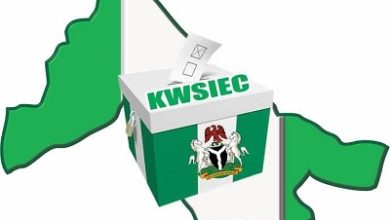Social media and its proposed regulation

Minister of Information and Culture, Lai Mohammed has spoken against
the social media on a number of occasions. Surely, for every country
with a ministry of information, the workers in such ministry must be
having dreadful nights. So recently the minister announced
government’s plans to regulate the social media usage as a means
towards combating falsehood.
Falsehood itself is debatable. But since the advent of the information
highway, other concepts like weaponisation of information, fake news
and hate speech have become very important. At different fora, the
information minister highlighted the dangers posed to the country’s
unity and progress due to fake news spread for example by faceless
individuals who take advantage of the quick and easy access to social
media to disseminate false information capable of causing harm to
individuals and to Nigeria’s corporate existence.
Perhaps seeing the merit in the executive’s move to control the social
media, the federal legislature has followed the same trend. The Senate
last week reintroduced a new Bill seeking a three-year jail term for
anyone involved in what it called “abuse of social media”.
The bill entitled; ‘’Protection from Internet Falsehood and
Manipulation Bill’’ is sponsored by Mohammed Sani Musa (APC, Niger
East). The Bill, which scaled first and second readings days ago
prescribes an option of fine of N150, 000 or both. Also, the Bill is
proposing a huge fine of N10 million for media houses involved in
“peddling falsehood or misleading the public.”
In 2016 when a similar bill was first introduced, it was withdrawn
following public outcry, on the ground that the Senate had sought to
compel social media critics to accompany their petitions with sworn
court affidavit, or face six months imprisonment upon conviction.
But defending the resuscitation of the Bill, Senator Musa, who heads
the Committee on Senate Services, claimed that “Nigeria needs the
legislation because it would protect its fragile unity.”
Musa said the law is required in this country because, according to
him, “if countries like Philippines, Singapore, Italy, Malaysia,
Australia, France, Indonesia, Egypt are putting in place control to
prevent the spread of false information, what stops us from doing it?
“There has never been a time when Nigeria has been very fragile in
terms of its unity than this period”, he added, noting that the
intendment was not to stop people from going into the internet for
legitimate communication, but to discourage people from using the
medium to pass false information in pursuit of narrow interest.
Senator Musa argued that advanced countries passed through their own
period of turmoil and challenges but were able to overcome them
through legislations and the rule of law. “For a country like Nigeria
today and with the advent of social media, there is every reason for a
country to as much as possible focus its attention to see how this new
media can be tolerated”, he argued.
As expected this move has generated some misgivings from concerned
Nigerians, including free speech advocates, media personalities and
other Nigerians.
People have said that social media is an avenue for Nigerians to bear
their minds and feelings about happenings in the country. Some have
also questioned democratic credentials of some of the proponents of
the bill.
Another group to question government’s motives is the opposition
Peoples Democratic Party (PDP), which accused the All Progressives
Congress (APC)-led federal government of plotting to gag the media,
subjugate Nigerians and curtail their constitutionally guaranteed
freedom of expression.
The party described the decision by the government to impose stringent
regulations on online media and broadcast organisations as completely
obnoxious, anti-democratic and a direct violation of statutory rules
governing media practice and freedom of expression in Nigeria. The
party warmed that such moves amount to an attempt to amend the
constitution to take away the rights of citizens and undermine the
nation’s democratic institutions, a development that has the capacity
to destabilise the country.
PDP further described the move as part of the dictatorial tendencies
of the present administration and its gradual emasculation of freedom
of expression, repression of a free press, infringements on the rights
of citizens and foisting of siege mentality on the people.
Everything taken into consideration we are of the view that Nigerians
own media rights just like the clothes they wear. It will be difficult
if not impossible to alter this right. The country got it’s
Independence via media activism and fought the military through the
media.
However, social media and citizen journalism is a different kettle of
fish. While we do not recommend stringent gagging, it will do the
society well if there is a more encompassing forum to debate the bill.
The people need to be sufficiently informed, educated and engaged on
what constitutes an offence in this regard. They must buy in to it,
otherwise, it will not achieve its purpose if it’s passed.
We feel that NASS and government in general have not done due
diligence on the characteristics of the bill. And it must not be
rushed or passed in camera.
Social media is a blessing and a curse. We must therefore tread softly
until we arrive at an equilibrium.





